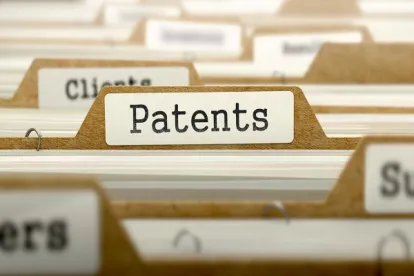Opponents of the use of Section 337 by Standard Essential Patent (SEP) holders claim that the threat of ITC exclusion orders lends itself to patent hold-up. These opponents, however, can point to no instance in which an ITC respondent has successfully made its case for “patent hold-up” to the Commission. Section 337 investigations have many opportunities for respondents to actually prove that the Complainant is abusing the process by seeking royalties on something other than fair and reasonable terms. The absence of any such successful showing by a respondent speaks for itself.
The Commission can and should take affirmative steps to police its proceedings and ensure not only that Section 337 is not being used in SEP cases as a “hold-up” weapon, but that respondents are not frivolously asserting this defense. In many investigations, too many party and agency resources are spent litigating unfounded allegations of “hold-up.” The Commission should put both sides to an early test.
The agency, fortunately, has the ability to bring the SEP/FRAND issue to an early head in Section 337 investigations, thereby leveling the playing field and ensuring that no party is able to game the system. The Commission’s so-called “Pilot Program” allows ALJs to issue interim initial determinations (“IDs”) on “fewer than all issues in an investigation.”[1] The program allows ALJs to quickly resolve “case-dispositive” or “significant” issues.[2] ALJs may suspend the investigation’s procedural schedule so that parties may concentrate on developing a factual record as to the designated issue(s) and prepare for a limited evidentiary hearing.[3]
The Commission (or ALJ) accordingly, should, in any Section 337 investigation in which a respondent alleges in its Response to the complaint that the asserted patents are SEP and the complainant has not met its FRAND obligations:
-
The private parties should be compelled at the outset to clearly state whether they are claiming that the asserted patents are SEP.
-
Use the Pilot Program to issue an interim initial determination as to whether (a) a party has claimed the asserted patents to be SEP and, if so, whether (b) the complainant has met its obligation to offer a license on FRAND terms (i.e. whether patent holdup or hold-out has taken place).
-
A failure by the respondents to unequivocally claim – at the outset – that the asserted patents are SEP would immediately dispose of the FRAND/hold-up issue. Vague assertions in the response to the complaint that the patents are SEP should not be sufficient to maintain this defense in a section 337 investigation.
-
If the respondent claims that the asserted patent claims are SEP, the ALJ should make an early determination whether the patent-owner has met its FRAND obligations.
-
The ALJ, if the respondent claims the patents are SEP, need not make a detailed finding of standard essentiality. Instead, the ALJ need only determine whether the patents had been offered on a FRAND basis; essentiality would be presumed for purposes of the FRAND analysis.
-
The analysis would be similar to early determinations as to whether a Complainant has met the economic domestic industry requirement: the Commission assumes, for purposes of the economic analysis, that the technical prong of the domestic industry requirement has been met.
-
Early resolution of the SEP/FRAND issue in this way would conserve agency and party resources and greatly simplify discovery and the evidentiary hearing. If the respondent does not clearly and unequivocally claim the patents to be standard essential, then there can be no argument that remedial orders would be contrary to the public interest on FRAND grounds.
Similarly, if the parties agree that the asserted patents are SEP, but the Commission finds that the Complainant has failed to offer to license the patents on FRAND terms, an early determination can be made whether a remedy would be contrary to the public interest. This could save the Commission from the long and arduous process of finding a violation (requiring determinations, inter alia, of patent invalidity, infringement, and the domestic industry issue).
In short, whether a patent asserted in a Section 337 investigation is standard essential, and whether the Complainant has complied with its FRAND obligations, is a “significant” issue that can and should be resolved early. ITC ALJs have the power and discretion to resolve “significant” issues under the new ITC pilot program. ALJs can and should use that power to resolve SEP/FRAND questions at the outset of Section 337 investigations. This will both prevent the use of Section 337 as leverage for patent “hold-up” and prevent respondents from engaging in patent “hold-out.”
FOOTNOTES
[1] Pilot Program Will Test Interim ALJ Initial Determinations on Key Issues in Sec. 337 Investigations,https://www.usitc.gov/press_room/featured_news/337pilotprogram.htm (last visited Mar. 7,2022) (“Pilot Program Press Release”). All investigations instituted after May 12, 2021, are eligible.
[2] Id.
[3] Id.





 />i
/>i

